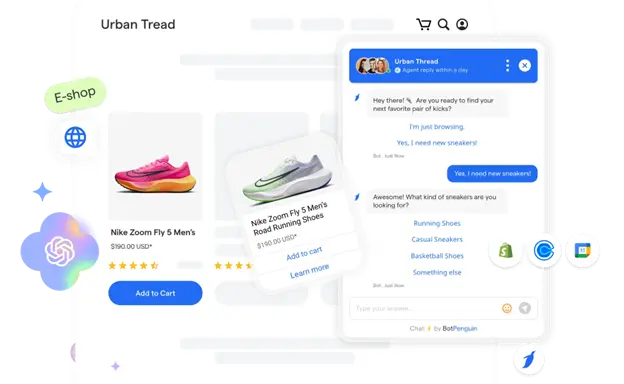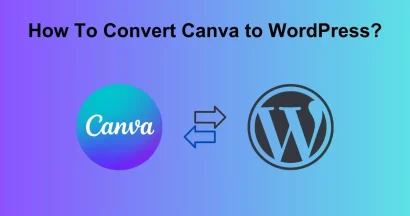Real estate agencies need trusted clients to thrive in such a competitive industry. Mastering the design of your real estate agency’s website is the key to generating high-quality leads that turn into buyers, sellers, landlords, or renters.
To remain competitive, real estate agencies must consistently update and maintain their list of leads as client behaviors change and market trends shift.
This article will explore how real estate agencies can design their website to capture more leads online.
Why Should You Capture Real Estate Leads Via Your Website?
There are plenty of advantages associated with growing a powerful online presence. As a real estate agency, your website is often your first chance to make an impression on both the buyer and the seller.
Here are some of the main advantages of capturing real estate leads online via your website:
- Leads don’t need to be active in the market yet. If a website visitor isn’t yet in the market to buy, rent, or sell, you can still use persuasive call-to-actions (CTAs) to gather their contact information. You can then add them to your list for future email marketing campaigns to build trust and credibility before they need your services.
- You can gather leads anytime. Your website is accessible to the public 24/7, allowing potential leads to take desired actions and leave their contact information anytime, even outside business hours.
- It is more cost-effective. Over time, capturing leads on your website is more cost-effective than paying for a lead generation company to do the work.
- You can better understand your leads. Depending on how you gathered their contact information, you may better understand where leads are in their journey. For example, if a lead entered their contact information to download an eBook from your website about ‘buying your first home’, you immediately know to target them with email marketing campaigns for buyers and not sellers.
As a real estate agency, your website plays a vital role in your success as a player in your industry. With so many competitors battling to make your listings shine, optimizing your website content, your listing layouts, and your site usability are paramount.
With this in mind, let’s take a closer look at how you can master real estate web design to capture more leads in 2025.
Implement CTAs To Gather Contact Information
When creating a real estate website, you must strategically place persuasive CTAs that encourage visitors to take specific actions, such as scheduling a free home appraisal, signing up for an email newsletter, or downloading a helpful guide.
To complete the action, they will enter their name and contact information, which adds them to your unqualified leads list. Ensure the form is short and only asks for essential details like name, email, and phone number.
Unqualified leads are those who are not yet ready to buy, rent, or sell but have shown interest in your real estate agency. Your next challenge is to convert them into qualified leads, those who are more likely to sell, rent, or buy a property through your agency. Top tip: Place a CTA in your sticky header, if you have one, so it is easy to locate, no matter where the visitor is on your website

Use SEO Best Practices
A robust search engine optimization (SEO) strategy helps real estate websites rank higher on Google, increasing visibility and attracting organic leads. Here are some of the SEO best practices for real estate websites:
- Improve local SEO. Improving local SEO ensures your website appears in searches such as “real estate agent in [city]”. You can do this by optimizing your Google My Business (GMB) listing, using location-specific keywords in page titles and content, encouraging clients to leave reviews, and obtaining backlinks from reputable local websites.
- Target high-intent keywords. Using real estate-specific keywords, such as “Homes for sale in [neighborhood]” and “Best real estate agent in [city]”, helps attract leads actively searching for properties in your area.
- Enhance website content. Ensure your website has SEO-friendly keywords, an effective meta title and description, internal links, and high-quality images with alt text.
- Optimise website performance. A slow or mobile-unfriendly site harms search engine rankings. You can optimize the performance of your real estate website by ensuring it is mobile-friendly, using fast-loading images and compressed files, and enabling caching and browser optimization.
Using these SEO best practices for real estate websites will ensure your agency appears in the search results for common buyer and seller queries such as “homes for sale in [city]” or “best real estate agent near me.”
Create Blog Posts
Creating fresh and relevant blog posts is essential as search engines rank this content higher on the results pages, increasing your website’s online visibility. Readers who find your content relevant and helpful will also likely create organic traffic by sharing your blog posts on social media or recommending them to friends.
In addition, informative blog posts are a great way to educate your website visitors and position your agency as an authority in the real estate industry. You can also build client trust by using blog posts to address common concerns for buyers, sellers, landlords, and renters.
High-performing blog posts should include SEO-friendly keywords, subheadings, bullet points, and high-quality visuals or infographics. Here are some examples of blog topics for a real estate agency website:
- Home-buying guides. Home-buying guides, such as “How to Secure the Best Mortgage Rate”, can build trust with buyers and guide any first-time through the process. This will help buyers feel more confident about taking the leap, especially with your agency.
- Selling guides. Selling guides, such as “How to Present a Home For Maximum Appeal”, are a great chance to use long-tail keywords that sellers and landlords are searching for.
- Investment guides. Investment guides, such as “How to Build Wealth Through Real Estate”, will attract high-intent buyers who are researching the market.
- Neighborhood spotlights. Highlighting the benefits of living in certain neighborhoods, such as “Best Schools In [Neighborhood]”, is good for local SEO. In addition, neighborhood spotlights give you a chance to promote properties you have to sell in the area.
- Market trends and updates. Updates about the real estate market, such as price trends in the local area or changes to property tax, will establish your agency as knowledgeable.
Remember to share your blog posts on Facebook and Instagram to drive social media followers to your website.
Integrate an AI-powered Chatbot
Unlike traditional communication methods such as calls and emails, AI-powered chatbots provide 24/7 support to your website visitors. This ensures that every prospect gets a fast and relevant response, keeping them engaged with your agency, even outside of your usual business hours. AI-powered chatbots can:
- Collect contact information. Before answering any questions, chatbots often ask for the prospect’s name and email address. Your agency can later add this information to its unqualified leads list.
- Help estate agents qualify leads. Chatbots can ask visitors questions like “Are you looking to buy, sell, or rent?” or “When are you planning to move?”. The responses help estate agents qualify leads and determine their readiness to complete a transaction.
- Answer frequently asked questions. Chatbots can save an estate agent’s time by answering frequently asked questions, such as “What homes are available in [neighborhood]?” or “What documents do I need to sell my home?”.
Schedule appointments and viewings. Chatbots can sync with agent calendars to automatically book appointments and appraisals for sellers or property viewings for buyers and renters. This will increase appointment bookings, as it is a quick and efficient process for leads who do not have time to call the agency

Embed Client Reviews
Client reviews can shape the reputation of your real estate agency, especially if you are new to the industry. Positive reviews reassure potential buyers and sellers that you are a trusted agency, making them more likely to reach out and become a lead.
In addition, reviews can improve your local SEO as Google prioritizes businesses with positive reviews.
Here are some tips for getting more client reviews:
- Ask at the right time. Following a successful transaction, send a thank you email to the client and include a direct link to your chosen review sites (for example, Google, Yelp, RateMyAgent, or Realtor.com).
- Make it easy. In addition to providing a link to your review site, offer step-by-step instructions for leaving a review or even a template.
- Engage with all reviews. Reply to positive reviews to show appreciation and professionally respond to negative reviews to build credibility.
In addition to embedding positive reviews on your website, consider posting reviews on social media. For example, a ‘reviews’ highlight on your Instagram page.
Ready To Capture More Real Estate Leads Online?
Mastering the design of your real estate agency’s website is a cost-effective and efficient way to capture more leads. In addition to your real estate agency’s website, high-quality leads can come from social media (especially Facebook and Instagram Ads) and email marketing campaigns.
Both unqualified and qualified leads are essential for the success of your agency. For qualified leads, you must focus on providing them an excellent service. For unqualified leads, you must nurture them until they’re ready to buy.
Read More: 5 Graphic Design Apps like Canva for iPhone
Contact US | ThimPress:
Website: https://thimpress.com/
Fanpage: https://www.facebook.com/ThimPress
YouTube: https://www.youtube.com/c/ThimPressDesign
Twitter (X): https://x.com/thimpress_com



